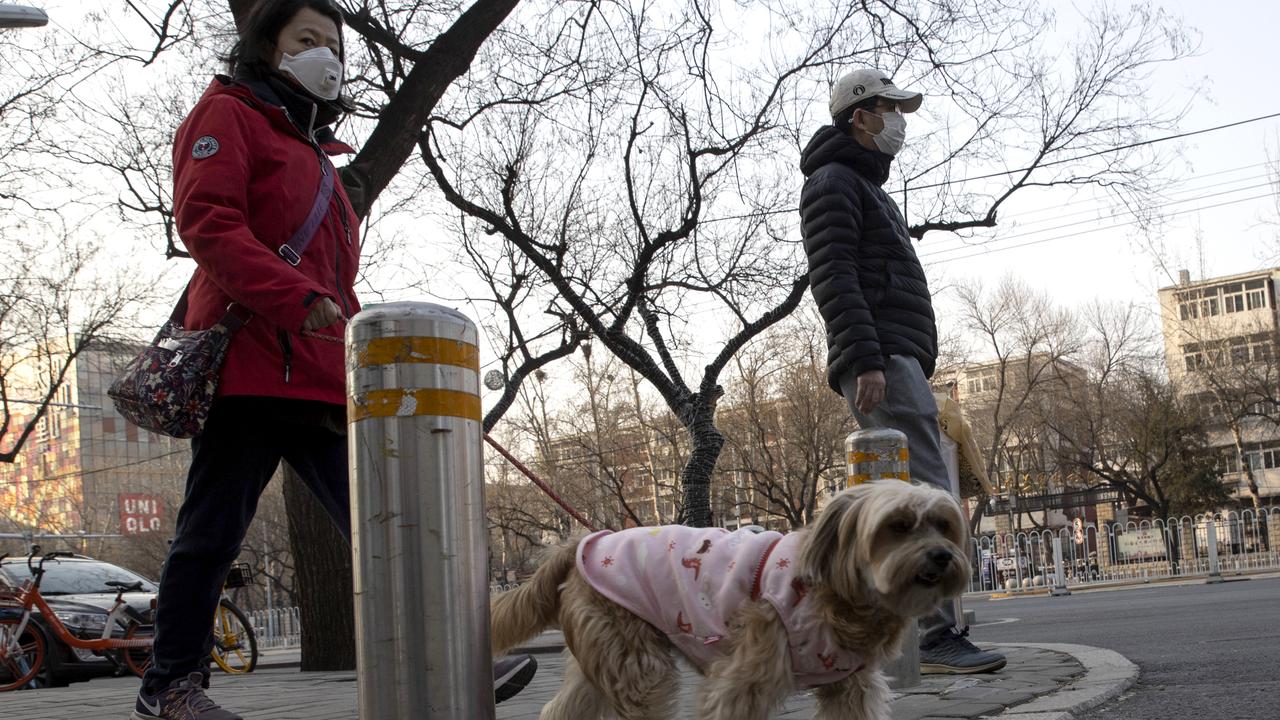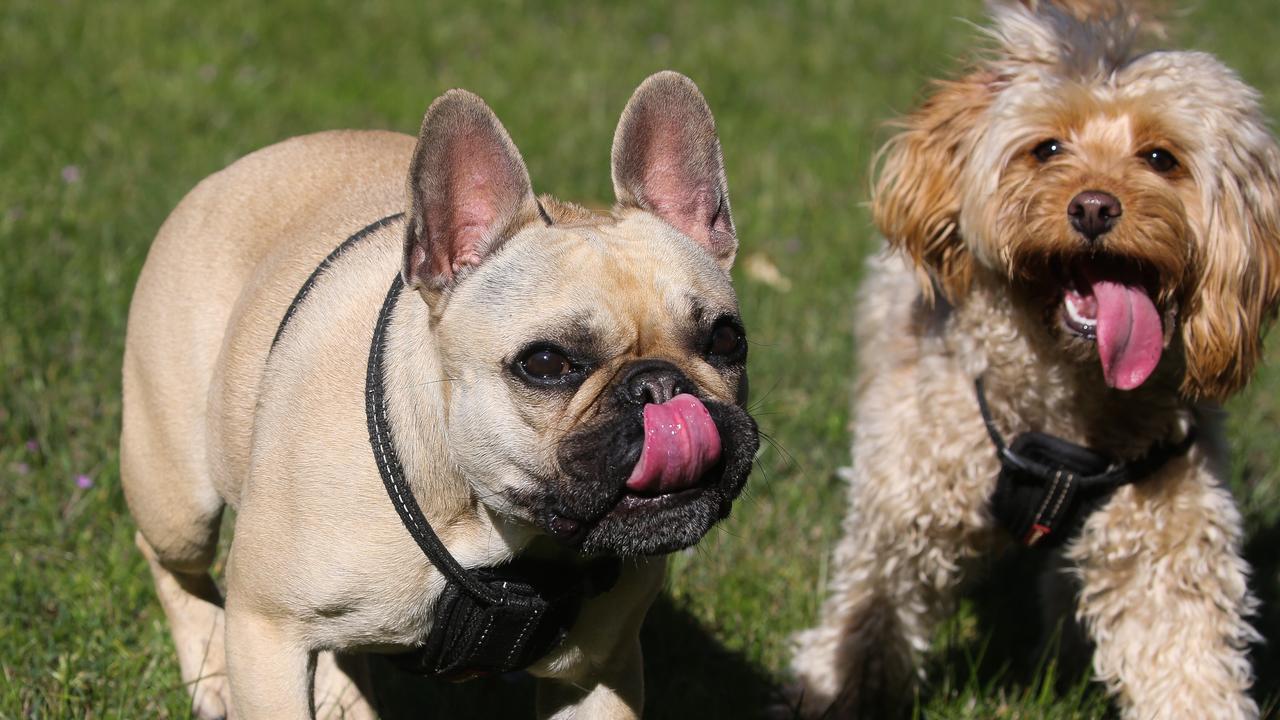‘Likely human-to-animal transmission’: Hong Kong woman’s pet dog has ‘low-level’ coronavirus infection
Hong Kong authorities have confirmed a coronavirus patient’s pet dog has a “low-level infection” saying it is “likely to be a case of human-to-animal transmission”.
Hong Kong health officials have confirmed a coronavirus patient’s pet dog has a “low-level infection” saying it is “likely to be a case of human-to-animal transmission”.
But they stressed there is still no evidence household pets can pass the virus on to humans or other animals.
City authorities announced last week that oral and nasal swabs from the dog had tested “weak positive” for COVID-19, but said they would continue to conduct further tests to determine whether the dog itself had contracted the disease or if the result was due to “environmental contamination”.
In a media release late on Wednesday, an unnamed spokesman for Hong Kong’s Agriculture, Fisheries and Conservation Department said the pet dog – reported to be a pomeranian – had “repeatedly tested weak positive for COVID-19 virus, which indicates a low-level of infection with the virus”.
The spokesman emphasised that “there is currently no evidence that pet animals can be a source of infection of COVID-19 or that they become sick”. “Apart from maintaining good hygiene practices, pet owners need not be overly concerned and under no circumstances should they abandon their pets,” the statement said.
RELATED: Follow coronavirus updates
The first samples were collected on February 26 and detected low levels of COVID-19 the following day. Tests were repeated on February 28 and March 2, “and the dog’s nasal and oral cavity samples, and nasal samples, respectively, tested weak positive for the virus”, the statement said.
Rectal and faecal samples tested negative on all three occasions.
“Experts from the School of Public Health of the University of Hong Kong, the College of Veterinary Medicine and Life Sciences of the City University of Hong Kong and the World Organisation for Animal Health have been consulted, and unanimously agreed that these results suggest that the dog has a low-level of infection and it is likely to be a case of human-to-animal transmission,” the statement said.
“The dog has not shown any signs of disease related to COVID-19. It is currently under quarantine at the animal keeping facility at the Hong Kong Port of Hong Kong-Zhuhai-Macao Bridge.
“There are two dogs under quarantine at the animal keeping facility at the Hong Kong Port of Hong Kong-Zhuhai-Macao Bridge at the moment, which are staying in individual rooms. The other dog tested negative for COVID-19 virus. The Department has stepped up cleansing and disinfection of the facility.”
The infected dog will continue to be closely monitored and further tests will be conducted. It will only be returned to its owner when the test result comes back negative. The other dog which tested negative will be tested again before being released.
“To ensure public and animal health, the Department strongly advises that mammalian pet animals including dogs and cats from households with persons confirmed as infected with COVID-19, or close contacts of COVID-19 infected persons, should be put under quarantine in AFCD facilities,” the statement said.

The spokesman reminded pet owners to adopt good hygiene practices including hand washing before and after being around or handling animals, their food, or supplies, as well as avoiding kissing them and to maintain a clean and hygienic household environment. People who are sick should avoid coming into contact with animals.
The news is likely to fuel fears about pets passing on the deadly virus, which has infected nearly 98,000 and killed more than 3300 since emerging in China in December, and is nearing global pandemic status.
Earlier this month, Chinese media reported pet dogs and cats were being thrown from apartment blocks after a rumour that the animals spread the coronavirus.
In Australia, one Sydney vet said there had been a spike in pet owners questioning whether the virus can be transmitted from their animals, with some asking if they should euthanise their pets.
The World Small Animal Veterinary Association, which had earlier said there was “no evidence that pets or other domestic animals can be infected with this new coronavirus”, has updated its official guidance in response to the latest news, although appears to remain sceptical.
“Testing at both the government veterinary laboratory (AFCD) and the WHO accredited diagnostic human CoV laboratory at Hong Kong University detected a low viral load in the nasal and oral swabs,” the WSAVA says.
“Both laboratories used the real-time reverse transcriptase polymerase chain reaction (RT-PCR) method and the results indicate that there was a small quantity of COVID-19 viral RNA in the samples. It does not, however, indicate whether the samples contain intact virus particles which are infectious, or just fragments of the RNA, which are not contagious.”
WSAVA stresses that the AFCD “states that there is still no evidence at this time that mammalian pet animals including dogs and cats could be a source of infection to other animals or humans”.
World Animal Protection spokesman Pankaj KC urged people not to overreact.
“The case of the dog in Hong Kong that tested ‘weak positive’ is an isolated case that so far, tells us very little. Especially given the dog is still showing no symptoms,” he said in a statement.
“To put it into perspective, consider that there are around 750 million dogs living in the world, mostly alongside people, and of all these, just one single dog, has tested positive for coronavirus. We don’t know enough at this stage about its possible transmission to other dogs, animals or even back to humans again.”
Mr Pankaj said for a dog to contract coronavirus, the disease would have to mutate to enable it to latch on to dog cells and “right now, we don’t know if this is the case”.
“Pets are important for companionship and they shouldn’t pay the price of our worries by being abandoned or cruelly mistreated in fear of them spreading the disease, especially not at this early stage,” he said.




